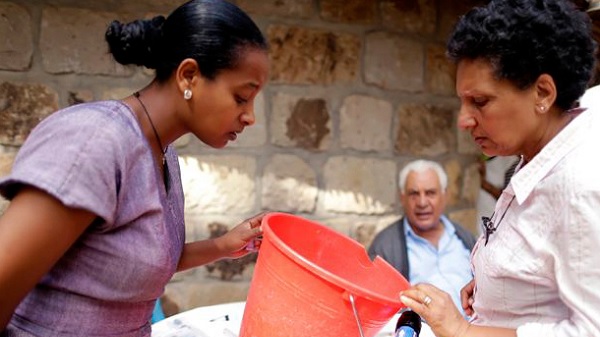
In our hospital, because we only have clean tap water available approximately twice per week when it is brought in by truck, we must supplement with river water, which we know is unclean.
By Ethiopian Doctors (The Daily Caller)
Our hospital serves an area of 2.5 million people. Located in southwest Ethiopia, we care for diverse populations from farming villages and tribal areas, to refugees from South Sudan. Health-care activities here are below standard by any measure and we face what sometimes feel like insurmountable challenges to curb these problems. But the single biggest challenge of all is water.
In our hospital, because we only have clean tap water available approximately twice per week when it is brought in by truck, we must supplement with river water, which we know is unclean. This may sound unthinkable, but a hospital needs water daily and for many purposes: not only drinking but also meal preparation, delivery rooms, operation theaters, patient wards, sterilization of medical equipment, toilet utilities, laundry, gardening, personal hygiene and so on. The lack of water/sanitation/hygiene (WASH) services deeply compromises our ability to prevent and control infections and puts our staff — our doctors, nurses and midwives, pharmacists, administrators and cleaners — at risk.
We have tried to harvest rain and have talked to city administration to direct the town’s total water to the hospital for one hour to pump it into a holding tank. It’s not enough.
Our hospital is not unique. Recent global assessments of the extent to which health-care facilities are able to provide essential water, sanitation and hygiene for their staff and patients, are dismal. In short, facilities overwhelmingly lack soap, water and toilets. This widespread problem poses global risk when many of these facilities are the frontline defense against infectious diseases that can turn into pandemics.
Large disparities exist among different facilities within the same country. That’s certainly something we see here. For example, according to the Ethiopian Ministry of Water and Energy 99 percent of health-care facilities in Ethiopia’s capital city of Addis Ababa have access to water while only 23 percent of health-care facilities in the region near our hospital have water (2012).
Read the complete story at The Daily Caller
